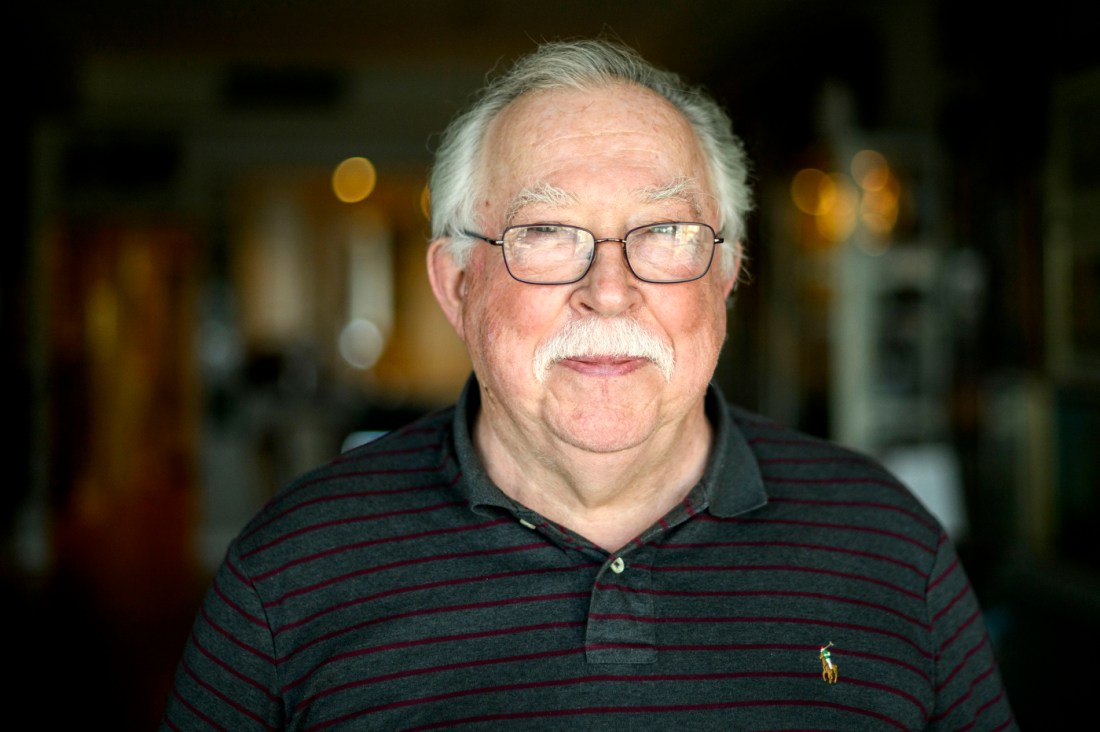Vladimir Torchilin has had a nearly 60-year career in the sciences and has been part of — or led — discoveries that have changed the way we do medicine.
Recently, Torchilin, a Northeastern University Distinguished Professor and director of the Center for Pharmaceutical Biotechnology and Nanomedicine, was named a Highly Ranked Scholar by ScholarGPS, a service that profiles and ranks scholars within their fields, usually by the number of citations they receive in other authors’ papers.
Measured across his lifetime, Torchilin is the second-highest ranked scholar in the fields of oncology, drug delivery and liposome (a drug delivery mechanism) research.

Torchilin began his career in Soviet Russia during the 1960s, and there are “several studies which I’m still proud of,” he says.
“There was a big interest for a practical use of biological catalyzer enzymes,” Torchilin continues. One venture, established at the National Medical Research Center of Cardiology in Moscow, “wanted to combine both medicine and science.”
To cover medicine, they recruited working medical doctors, but “they needed someone who [was] familiar with basic science.” Torchilin, a chemist, “was young but very aggressive,” he says with a laugh.
The concern of this new research venture was to address difficulties in thrombolytic therapy — the treatment of blood clots, myocardial infarctions, strokes, etc. “At that time,” Torchilin says, the only approach was to use an enzyme that could dissolve these clots.
But the only source for this enzyme was streptococcus. “Unfortunately, all of us — I mean humans — are infected, vaccinated from streptococci from childhood.”
So the researchers needed to discover a way to introduce the appropriate enzyme in a way that the body would absorb and not reject it outright.
“My group published several papers in the mid-seventies,” he says, laying the groundwork for the “principles of enzyme stabilization. And these principles are still valid.” In fact, many modern enzyme treatments are “still based on the same principles.”
The thrombolytic agent that Torchilin and his team developed was widely used throughout the 1970s and 1980s. But the same drug also had “an absolutely unexpected use.”
“We were thinking about cardiovascular diseases,” he says, but it also proved “to be extremely useful in the treatment of eye trauma.”
Eye trauma, “as a rule,” Torchilin continues, manifests as a “blood hemorrhage into the back sphere of the eye.” An enzyme injection into that area of the eye can help, but conventional enzymes would simply pass through the back wall of the eye and go unabsorbed.
Torchilin discovered that, using a slightly modified version of their thrombolytic enzyme, the drug would no longer escape through the eye’s membrane and provide greater therapeutic results.
“It was like a very collective study where I did the basic part, doctors did the medical part and industrialists” produced and distributed it.
Torchilin recalls visiting an “eye institute to meet with the parents of kids” with traumatic eye injuries and their reactions to the positive effects of this drug. “This was really touching,” Torchilin says. “They were crying, we were crying.”
Another advancement Torchilin cites is in the fast-popularizing field of nanomedicine, “using nanoparticles to deliver drugs.” The problem is that “any nanoparticle is a foreign object” to the body, Torchilin says, and the body responds defensively to foreign objects.
“There are special proteins in the blood,” Torchilin continues, “the only function of which is to recognize foreign particles” and earmark them for filtration out of the body by the liver.
To ensure proper delivery of nanomedicines, “you have to somehow deceive the system.”
Torchilin’s solution? “Make it look like water.” To accomplish this, “we created hydrogels,” polymer solids whose makeup was constituted by a significant percentage of water, while still remaining a solid.
“It was really important stuff, and quite a few drugs which are marketed today are based on this result.”
Advancements like these are one reason why Torchilin’s papers have been so heavily cited by others working in his field.
When asked about what comes next, Torchilin says slyly, “This is a lifelong award, I am an old man.”
“Retirement, fishing, drinking Scotch. This is the next step.”
Noah Lloyd is the assistant editor for research at Northeastern Global News and NGN Research. Email him at n.lloyd@northeastern.edu. Follow him on X/Twitter at @noahghola.
